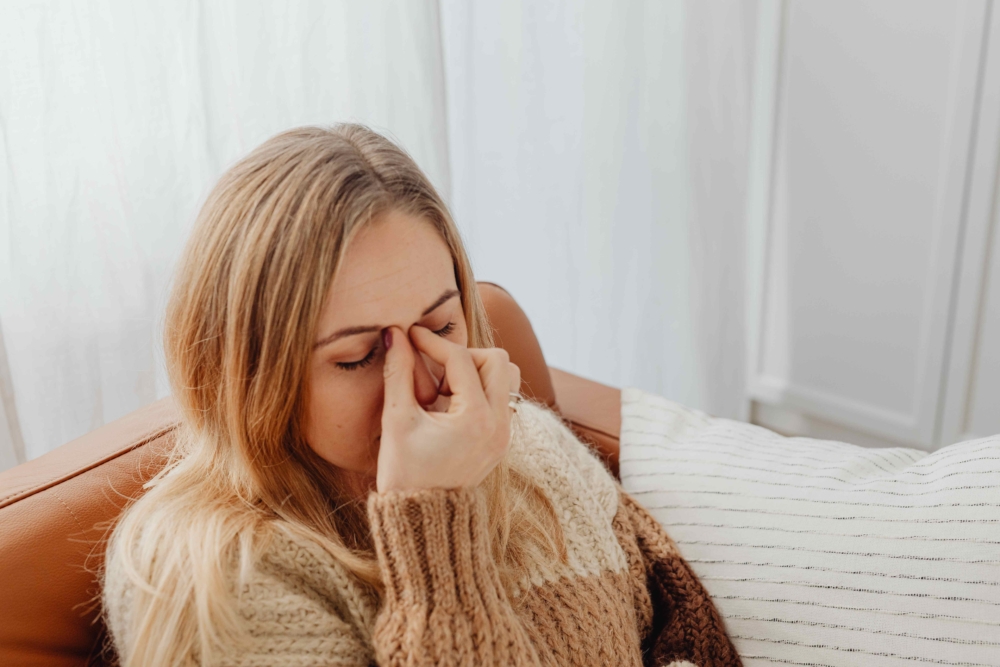Why Do My Allergies Get Worse During Winter?

As temperatures drop and windows close, many people find their allergy symptoms are still going strong… sometimes even worse than before. That’s because winter tends to shift allergy season indoors.
With more time spent inside and heaters circulating air, common triggers like dust mites, mold and pet dander can quickly build up in your home.
For patients in South Florida, where mild winters still bring fluctuating indoor humidity levels, these issues can be especially persistent, making expert help from a local allergy and asthma clinic essential.
If you’ve been sneezing, coughing or waking up congested this winter, it may be time to visit a nearby allergy and asthma clinic to determine the cause of your symptoms so you can enjoy the season comfortably.
Why does winter make allergies worse?
While spring and fall allergies get most of the attention, winter allergies are a year-round reality for many. Cold weather forces us to keep windows closed, trapping allergens and irritants indoors. Heating systems recirculate air—and with it, dust and pet dander—throughout the home.
At the same time, dry indoor air can irritate nasal passages, making them more sensitive to allergens. Add in the fact that cold and flu symptoms can mimic allergic reactions, and it’s easy to overlook that allergies are often the true cause of lingering congestion or coughing.
If your symptoms persist for weeks without improvement, it might not be a cold; you may need an allergy treatment plan that targets indoor triggers.
What are the most common indoor allergens?
Several triggers stand out when it comes to winter allergies. Understanding and managing your causes can mean the difference between headaches and happiness.
Dust Mites
These microscopic creatures thrive in warm, humid spaces like bedding, upholstered furniture and carpets. Their waste particles are a major cause of year-round allergy symptoms.
How to reduce exposure:
- Wash bedding weekly in hot water (at least 130°F).
- Use allergen-proof mattress and pillow covers.
- Vacuum carpets and furniture with a HEPA filter vacuum.
- Keep indoor humidity below 50%.
Pet Dander
When the weather gets cold, we spend more time indoors with our furry friends. Unfortunately, that also means more exposure to pet dander, one of the most common indoor allergens.
How to reduce exposure:
- Keep pets out of bedrooms and off upholstered furniture.
- Bathe and groom pets regularly.
- Use an air purifier with a HEPA filter in main living areas.
Mold
Even though outdoor mold levels drop in winter, indoor mold can thrive in damp spaces like bathrooms, kitchens and basements. Condensation around windows and pipes can also encourage mold growth.
How to reduce exposure:
- Repair leaks promptly.
- Run exhaust fans during showers and cooking.
- Use a dehumidifier in basements or other damp areas.
- Clean visible mold with an appropriate cleaning solution.
Indoor Irritants
Not all triggers are allergens; some are simply irritants that can make symptoms worse. Scented candles, cleaning chemicals, smoke and even wood-burning fireplaces can cause nasal irritation.
How to reduce exposure:
- Choose unscented cleaning products.
- Avoid smoking indoors.
- Ensure good ventilation when using fireplaces or space heaters.
Combining this knowledge with the habits above and ongoing allergy treatment can provide lasting relief throughout the winter months.
“Should I see an allergist?”
If your “winter cold” just won’t go away or over-the-counter medication isn’t helping, it’s time to schedule an allergist appointment. At an allergy and asthma clinic, you’ll receive expert testing to identify your specific indoor triggers and a personalized care plan to help you manage them.
At AAAF, our specialists work with patients throughout South Florida to develop tailored care plans that fit your lifestyle and home environment. Your allergist may recommend:
- Allergy testing to pinpoint what’s causing your symptoms.
- Prescription medication or immunotherapy (allergy shots) for long-term relief.
- Environmental control strategies for your home or workspace.
- Asthma evaluation and management, if breathing symptoms are present.
An early visit can help you prevent worsening symptoms and prepare for outdoor allergy season once spring arrives.
Feel your best every season!
Winter should be a time for cozy nights, not constant sneezing. Managing indoor allergies starts with understanding your triggers and getting expert support. If you’re ready to breathe easier this winter, schedule your allergist appointment with Asthma and Allergy Associates of Florida today.
About Family Allergy & Asthma
Founded in 1979, Family Allergy & Asthma’s practice network of allergy and asthma specialists provides high-quality, reliable and lasting allergy relief throughout Arkansas, Florida, Illinois, Indiana, Kentucky, Missouri, Ohio, Pennsylvania and Tennessee, and includes affiliates Allergy & Asthma Specialists (AAS), Asthma and Allergy Associates of Florida (AAAF) and Arkansas Allergy and Asthma Clinic (AAAC). For more information, visit www.familyallergy.com, and follow Family Allergy & Asthma on Facebook, Instagram and X.

